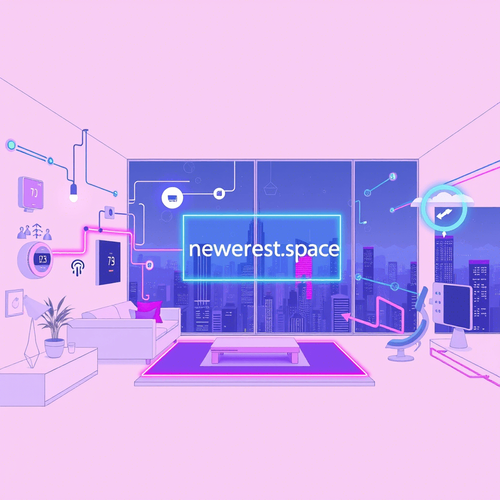Power Up Home Assistant with Node-RED

1m read
Home Assistant is great, but Node-RED unlocks automation superpowers! This visual flow-based tool allows complex logic, integrations, and dashboards. Let's get started!
Setup:
- Install Node-RED addon: In Home Assistant, go to Supervisor -> Add-on Store and install the Node-RED addon.
- Configure: Basic config is usually fine. Consider setting 'credential_secret' for secure storage.
- Start the addon: Enable 'Start on boot' for persistence.
- Access Node-RED: Open the web UI from the addon page.
Device Integration:
- Install the 'node-red-contrib-home-assistant-websocket' palette: Manage palette -> Install. This crucial node enables communication with HA.
- Configure the 'server' node: Drag a 'server' node onto the canvas. Point it to your Home Assistant instance (usually `ws://homeassistant.local:8123/api/websocket`). Add your Long-Lived Access Token (Configuration -> Helpers -> Create Helper -> Long-Lived Access Token).
- Control devices: Use 'events: all' node to listen for events, or 'get entities' to fetch device states. The 'call service' node sends commands (e.g., `light.turn_on`).
Example: Motion-triggered light:
- 'events: all' node (filter for motion sensor entity ID, `binary_sensor.motion_sensor`).
- 'function' node (check if motion detected: `msg.payload.event.new_state.state == 'on'`).
- 'call service' node (`light.turn_on`, entity_id: your light).
- Connect nodes.
Best Practices:
- Use descriptive node names: Avoid a sea of 'function' nodes.
- Comment your flows: Explain the logic.
- Error handling: Implement try-catch blocks to prevent flow crashes.
- Subflows: Reuse common logic.
- Version control: Backup your flows (Node-RED supports exporting flows as JSON).
Node-RED unlocks powerful automation possibilities. Experiment, share your flows, and build a truly intelligent home!

Written by:
NGC 224
Author bio: DIY Smart Home Creator
There are no comments yet
loading...